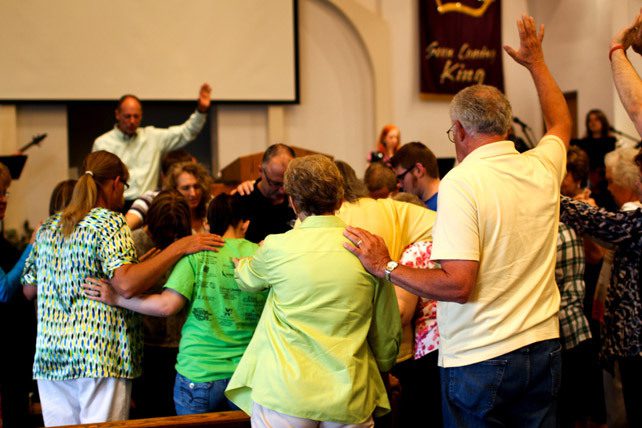My friend Ron Klassen leads a key ministry to rural North America, the Rural Home Missionary Association. As you may know, we host the Rural Matters Institute at the Wheaton College Billy Graham Center. We’ve partnered together on a few things, and I had the privilege of speaking at their annual meeting a few years ago. So, I was glad to endorse his new book, “Maximize: Leveraging the Strengths of Your Small Church.”
Here is my endorsement:
There are healthy large churches and healthy smaller churches. There are also unhealthy examples of each. Yet it is true that although the vast majority of churches are small, the largest churches typically provide the examples we see expressed for effective ministry. Ron Klassen, a longtime advocate for small and rural churches, shows the hope we have in the small church by describing what a healthy small church looks like, what effective preaching sounds like, and what relational Christianity could be like when lived out in the context of a small church. It’s an excellent book and worth your time!
And, here are 20 curated quotes (truths) that will give you a feel for the book.
Introduction to Section One:
“The vast majority of pastors will never serve a church larger than 150 people. Perhaps this means we are mislabeling—maybe, instead of small-size churches, we should call them normal-size churches. For sure, if many of us are in it for life, we do well to make sure we have right thinking about small-church ministry. And, we do well to work at becoming small-church specialists.” (11)
Chapter 4:
“Perhaps the most noteworthy strength of a healthy small church, commonly acknowledged by many, is that it is personal and relational. Relationships are highly valued in the small church.” (38)
“Relationships matter. We are designed by God to live in healthy relationships. Outside of our homes, where might this better happen than in a small church?” (41)
Chapter 5:
“The small-church pastor preaches to faces he knows. The big-church pastor looks out on a sea of faces, most of whom he doesn’t know personally. Small-church pastors don’t preach to crowds; they preach to individuals.” (44)
“Youth ministry is one example of many of the personal kinds of ministry that can be done in a small church. I am suggesting that we maximize this relational strength—leverage it into a ministry for youth that in turn becomes a strength of the church.” (46)
Chapter 6:
“[I]n small-church ministry, we do well to make relationships a higher value than programs. We do well to be more relationship-driven than program-driven.” (48)
“A small-church pastor said, ‘It took me a long time to realize that interruptions don’t take me from ministry; they are opportunities for ministry.’ Being available like this requires working ahead on sermons and such, so that interruptions don’t put you in panic mode or pressure you into declining an invitation for coffee.” (49)
“How do we care for people’s lost souls? The gospel can be communicated through a program, or by attracting people to a church building, impressive worship service, or special event. Or, it can happen relationally.” (52)

